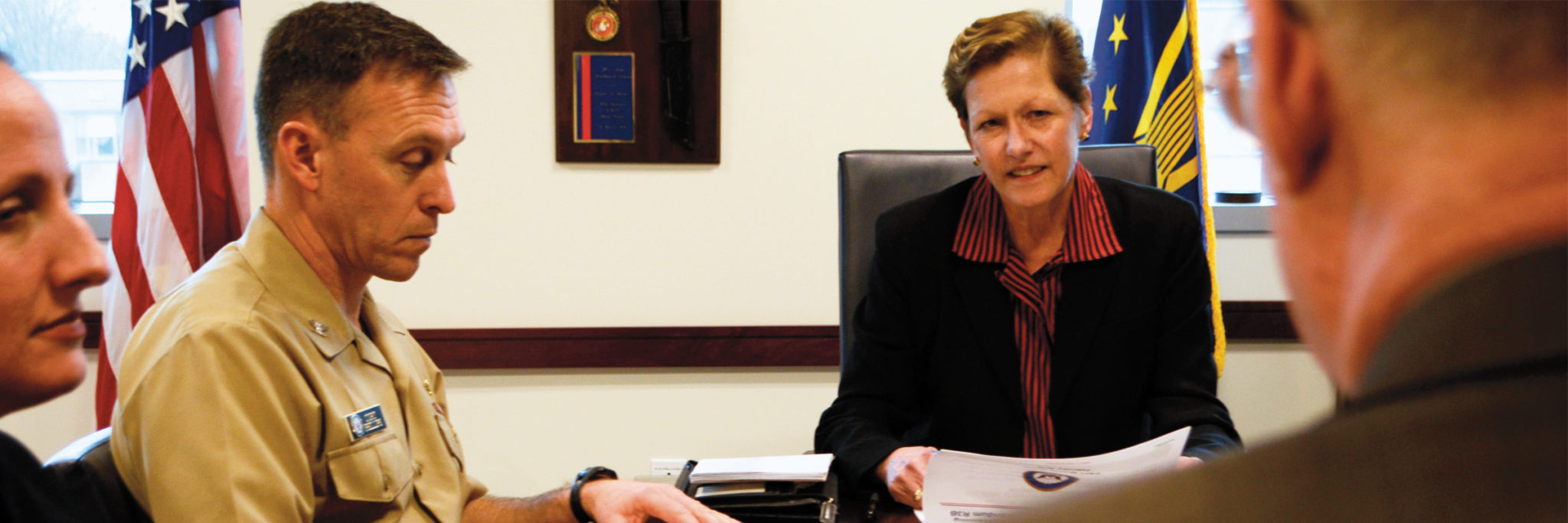In January 2016, Anne Rathmell Davis ’75 was named assistant deputy chief of naval operations for manpower, personnel, training and education for the U.S. Navy. Colonel Davis (retired) comes from a family of service and sacrifice—her father served in the Marines during World War II and fought in the battle of Okinawa; her mother served the war effort as a private citizen who used her pilot’s license to fly transatlantic flights, delivering military aircraft to Europe; and her oldest brother was killed in Vietnam. Davis’ responsibilities include finding and recruiting talented individuals to serve, executing training pipelines that take young sailors through their initial education and beyond, and ensuring that the Navy’s ships, squadrons, and submarines are fully manned. She recently spoke to Denison Magazine about her duties, the role of women in combat, and other issues.
Why did you decide to enlist in the service?
As I was growing up, I told myself if I couldn’t figure out what to do with my life, I’d join up. When I was a senior at Denison, I decided to go to law school, so I went to the Marine Corps recruiting station. I knew there were lawyers in the Marine Corps, and that guaranteed me a job after law school so I could pay off my student loans. I earned a law degree from the University of Pittsburgh in 1978. My intention was to do my obligated military time, and that would be it. I never thought I’d spend the next 33 years in the service.
Should women have a more active role
in combat?
Yes. When I joined the service, women were precluded from serving on ships. When I went to officer school, I was issued a makeup kit. Then things began to change, and when I later attended Basic School, I was issued an M16. If they’d asked me if I wanted to be a Marine grunt, I would’ve said, “Yes, I’ll do anything.” It’s interesting to see what will happen as we embark on this new era. Most of the women I know in the service would be insulted if they thought standards were being lowered to give them a chance.
Do you think being a woman kept you from rising higher than colonel in rank?
No female reserve officers in the mid-1990s had been promoted to the level of one-star brigadier general. So today, when you look across the ranks, you don’t see the same representation of men and women at senior levels. That’s because historically, women did not hold combat command positions, and you need experience in that area to garner a major promotion. I get this a lot from people: “Gee, you must’ve seen a lot of discrimination or sexual harassment in the Marine Corps.” Well, it didn’t happen. Or I was just too oblivious to notice. The Marine Corps doesn’t care what you are; they only care how you perform.
Looking back at your life and career, what are you most proud of?
Being a good mother to my son.
—Benjamin Gleisser

